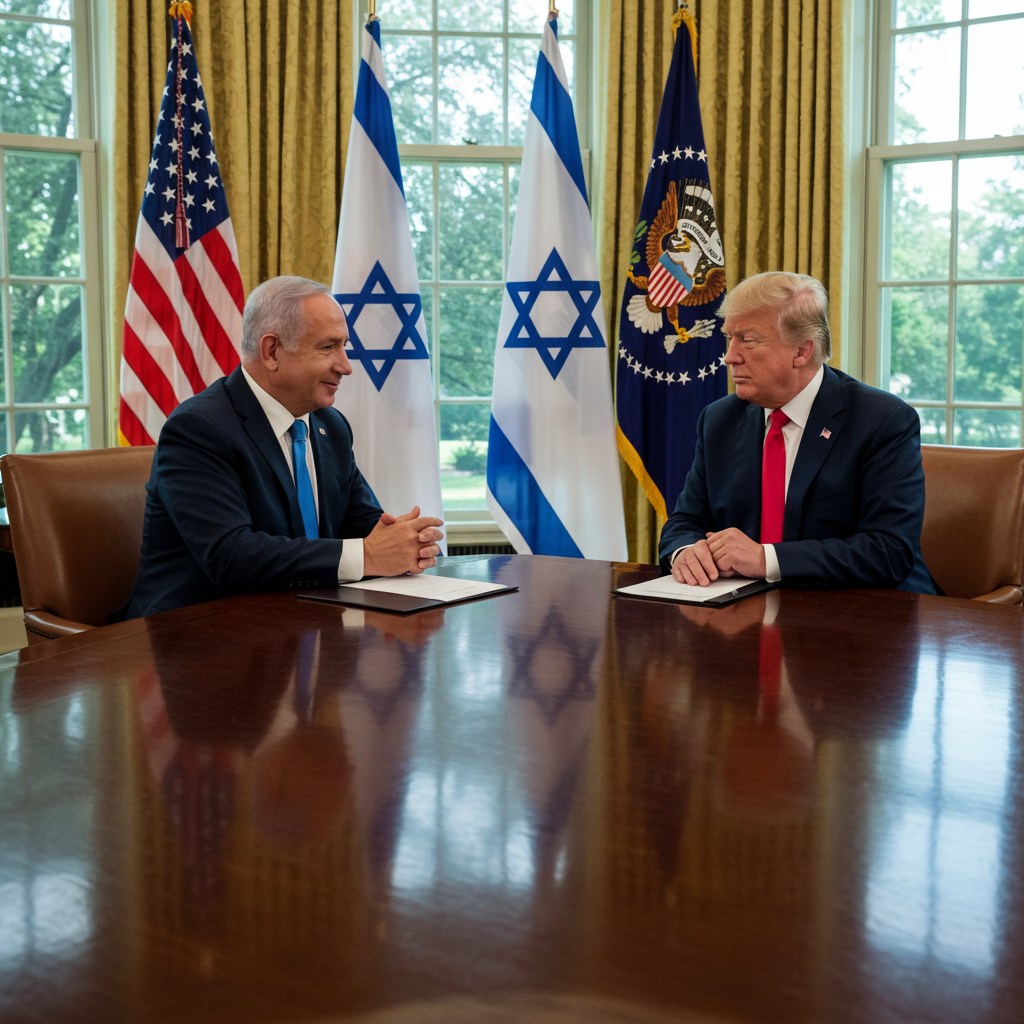In a significant escalation of their public feud, former President Donald trump has vehemently attacked Elon musk’s recently announced plan to establish a new political entity, provisionally named the “America party.” Trump dismissed the idea as “ridiculous,” arguing forcefully against the viability and purpose of third parties within the established American political structure. The criticism highlights a dramatic shift from their previous relationship, where Musk served as a notable ally to the former president.
Trump Dismisses Third Parties as ‘Ridiculous’ and Confusing
Speaking to reporters, and later reinforcing his stance on his Truth Social platform, Donald Trump made it clear he has no faith in third-party movements in the United States. He asserted that the nation has always fundamentally operated as a two-party system. Trump contended that attempting to launch a third party would not only fail but would actively create “Complete and Total DISRUPTION & CHAOS,” adding unnecessary “confusion” to the political landscape. His comments underscore the deep-seated institutional and historical challenges faced by any group trying to break the Republican and Democratic duopoly.
Why Trump Says Third Parties Never Work
Trump drew upon the long history of American politics to support his view. He pointed out that despite numerous attempts over centuries, third parties have consistently struggled to gain meaningful traction or achieve lasting success on a national scale. The existing political infrastructure, including elements like the Electoral College, winner-take-all election systems, and complex ballot access laws, heavily favors the two dominant parties. Trump presented the Republican Party, in particular, as a “smooth running ‘machine’” by comparison, suggesting that splitting the non-Democratic vote would be detrimental to his own political aims.
Musk’s Rationale for the ‘America Party’
Elon Musk, the billionaire entrepreneur behind Tesla and SpaceX, announced the formation of the “America Party” over the weekend on the social media platform X, which he owns. Musk framed the new party as a necessary challenge to what he describes as a Republican and Democratic “Uniparty.” He characterized the current system as one primarily focused on “waste & graft,” leading to a “one-party system” that is “bankrupting our country.” Musk argued this status quo does not genuinely represent the interests or desires of the American people, asserting the “America Party” aims “to give you back your freedom.”
Targeting Congress, Not the Presidency (Initially)
Musk provided some initial insights into the new party’s strategy. While he suggested a presidential candidate might be supported at some point, he stated the immediate focus for the next 12 months would be on influencing races for the House of Representatives and the Senate. Musk proposed that the party could target winning a small number of key congressional seats – perhaps two or three in the Senate and eight to ten in the House. Given the narrow margins in Congress, he believes this could be enough to form a decisive voting bloc capable of holding the balance of power. This strategic position, he argued, could allow the “America Party” to ensure legislation serves “the true will of the people” by acting as a swing vote on contentious bills.
From Allies to Adversaries: The Musk-Trump Feud Deepens
The public clash marks a significant deterioration in the relationship between Trump and Musk, who were previously considered close allies. During Trump’s presidency, Musk held a unique role, leading the informal Department of Government Efficiency (Doge). This initiative was tasked with identifying ways to cut federal spending and streamline government operations. However, their relationship has soured, notably intensifying over recent policy disagreements.
Policy Clashes Fueling the Fire
Trump specifically linked the renewed friction to policy disputes. He claimed Musk’s discontent stemmed partly from Trump’s recently signed tax and spending plan, which became law on July 4th. Musk has been a vocal critic of this legislation, which the non-partisan Congressional Budget Office estimated would increase the national deficit by $3.3 trillion over the next decade. Musk criticized the bill as an “insane spending bill” and a “disgusting abomination,” particularly highlighting tax cuts for the wealthy while cutting welfare programs.
Trump also zeroed in on the issue of Electric Vehicles (EVs). He asserted that he had always opposed an “Electric Vehicle (EV) Mandate,” which he claimed Musk supported. Trump highlighted that his new law deliberately ended tax breaks for electric vehicles, allowing consumers the freedom to choose between gasoline-powered, hybrid, or new technology vehicles without being “forced” into EVs. Trump even claimed he had discussed his intent to terminate any EV mandate with Musk when seeking his endorsement, and that Musk had indicated “no problems with that” at the time – a claim that directly contradicts Musk’s alleged push for such a mandate.
Trump raised another point of contention, alleging that Musk had sought inappropriate influence during his time in the administration. Trump claimed Musk asked him to nominate a close friend, described as a “blue blooded Democrat” with ties to the space industry, as NASA administrator. Trump stated he found this request “inappropriate,” given NASA’s critical importance to Musk’s company, SpaceX, which holds significant government contracts.
Trump’s Harsh Words and Business Risks
Beyond policy disagreements, Trump unleashed personal criticism against Musk on Truth Social. He expressed sadness over Musk’s recent behavior, characterizing him as having gone “completely ‘off the rails,’ essentially becoming a TRAIN WRECK” over the preceding five weeks. The harsh language reflects the depth of the personal animosity that has developed between the two figures.
Concerns for Musk’s Business Empire
The public feud carries potential risks for Musk’s extensive business interests, particularly those heavily reliant on government contracts, such as SpaceX. Trump recently hinted at potential retaliation, suggesting he might “look into” deporting the South African-born billionaire and musing about cutting subsidies to Musk’s companies. He also used a notable metaphor, referencing the “Doge” initiative that Musk briefly headed as a “monster that might have to go back and eat Elon.” This escalating tension has reportedly caused concern among investors, potentially impacting the market performance of companies like Tesla. Former Treasury Secretary Scott Bessent, who clashed with Musk while at DOGE, has also advised Musk to focus on his businesses, suggesting his company boards are likely displeased with his political ventures and that polls showed Musk himself was not popular, despite the DOGE concept being well-received.
The formation of new political parties in the U.S. does not initially require formal registration with the Federal Election Commission (FEC). However, reporting regulations apply once spending surpasses certain thresholds. As of reports, formal registration steps were unclear, though some apparently inauthentic “America Party” entries with jokey details appeared in the FEC database following Musk’s announcement.
The renewed political clash follows previous periods of tension between the two, including social media exchanges referencing sensitive topics. Despite these previous spats, Musk reportedly spent a significant amount of his personal fortune – estimated between $250 million and $275 million – to support Trump’s bid for a second term in the previous November election. The current dispute over spending and third parties marks a dramatic turn after that substantial financial backing.
Frequently Asked Questions
Why does Donald Trump call Elon Musk’s new political party “ridiculous”?
Donald Trump argues that establishing a third political party in the United States is “ridiculous” because the U.S. has historically operated as a two-party system. He believes that a third party effort is inherently doomed to fail due to the existing political structure and would only create confusion, disruption, and chaos, rather than offering a viable alternative to the Republican and Democratic parties.
What are Elon Musk’s stated reasons for forming the “America Party”?
Elon Musk states he is forming the “America Party” to challenge the current system, which he views as a “Uniparty” controlled by both Republicans and Democrats that is focused on “waste & graft” and bankrupting the country. He believes this system is not a true democracy and aims for the new party to give people back their freedom by acting as a swing bloc in Congress to pass or block legislation.
What challenges do third political parties typically face in the United States?
Third parties in the U.S. face significant historical and structural challenges. These include the winner-take-all nature of elections, the Electoral College system for presidential races, strict ballot access laws that favor major parties, and difficulty raising funds and gaining media attention compared to the established two. Past attempts by figures like Ross Perot or Teddy Roosevelt, while sometimes impactful, ultimately failed to break the two-party dominance.
This escalating feud between two highly prominent and influential figures underscores the volatility of political alliances and the potential real-world implications for business and policy when personal and political disagreements collide. Whether Musk’s “America Party” gains any significant traction or becomes another historical footnote remains to be seen, but the public spat with Trump certainly casts a shadow over its potential path forward and Musk’s future political engagements.



